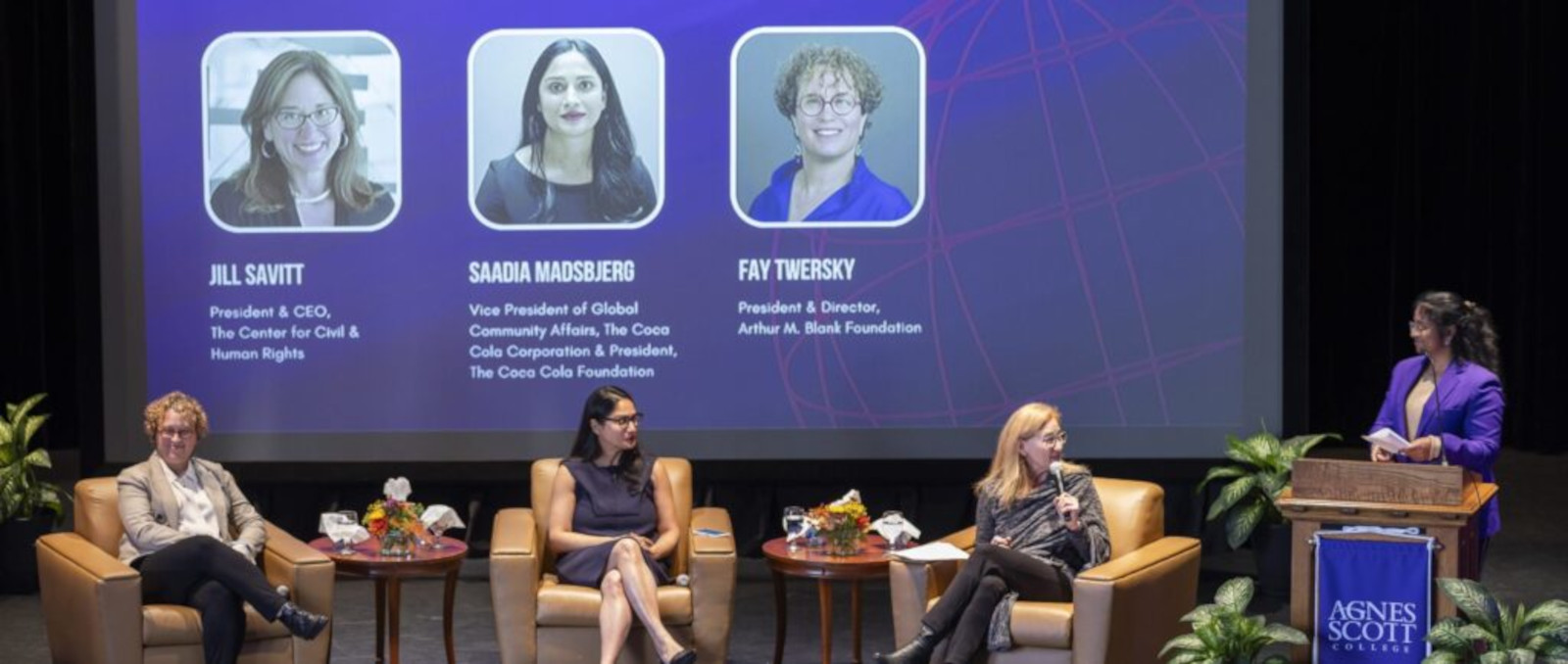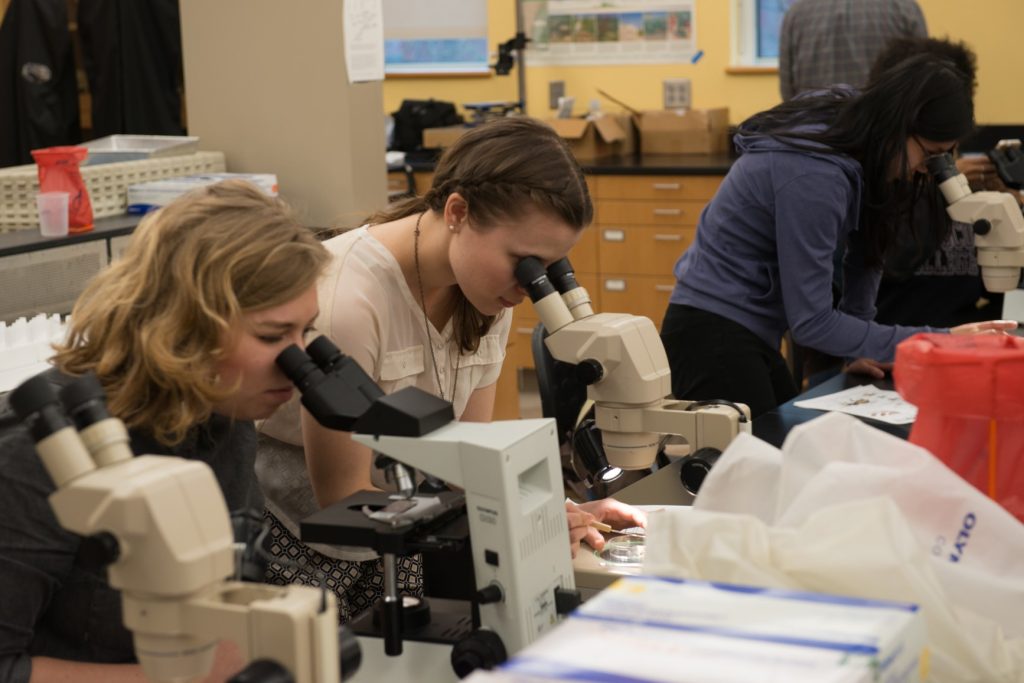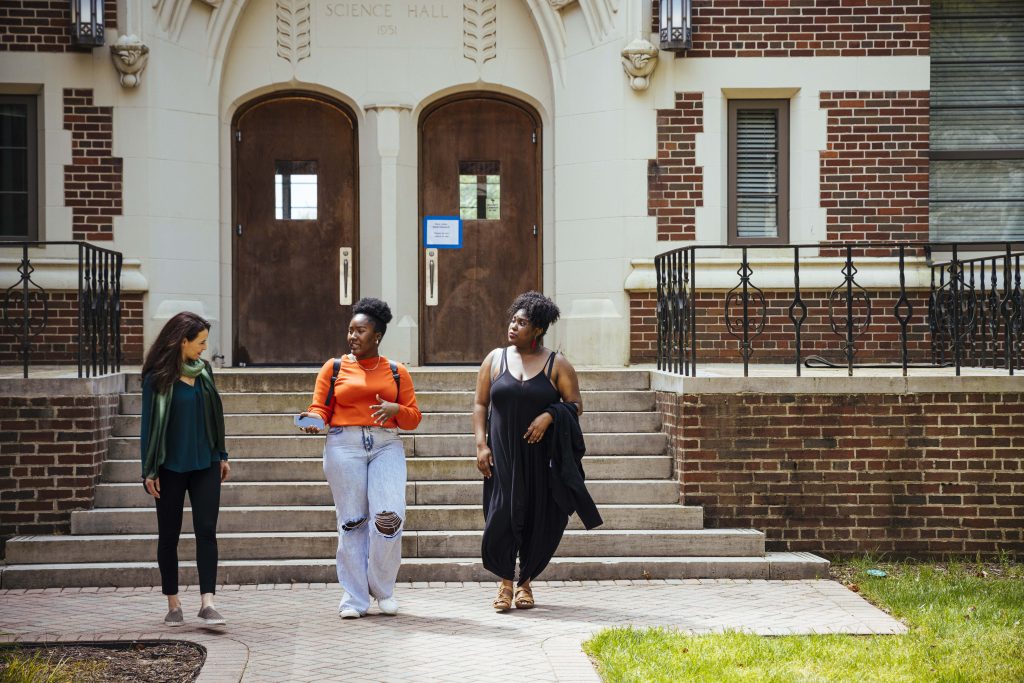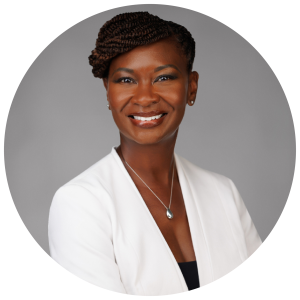
Pictured L-R: Fay Twersky, President & Director, Arthur M. Blank Foundation; Saadia Madsbjerg, President of The Coca-Cola Foundation and Vice President of Global Community Affairs for The Coca-Cola Company; and Jill Savitt, President & CEO, The Center for Civil & Human Rights, discuss social mobility at Agnes Scott’s Women’s Global Leadership Conference.
A recent poll revealed a startling statistic: less than 1/3 of women in the US believe that in our nation, anyone can get ahead through hard work. And young women reported the lowest levels of belief. Somehow, upward mobility is feeling less possible for many, even as philanthropy, the business community and higher education institutions recognize that social mobility is the bridge to opportunity and the investment required for an equitable future.
Madsbjerg was part of Agnes Scott College’s 2023 Women’s Global Leadership Conference (WGLC) where business, philanthropic and academic leaders engaged with students to discuss the importance of access and visibility to social mobility. Panelists from leading Atlanta organizations shared reflections on how visibility, inclusion and access have impacted their career achievements.
Co-panelist Fay Twersky of the Arthur M. Blank Family Foundation reflected on her experience as a Pell Grant student, sharing how her work study job at the American Red Cross was her “other education.” It provided her with a set of experiences serving those less fortunate – people facing homelessness, food insecurity and other emergencies – who were a world away from the university she was attending a few miles up the road. This led her down a path to solve systemic, seemingly intractable, social problems – using research and data to figure out what works and to inform decisions at nonprofits—and ultimately to a leadership role in philanthropy. But, when she was just a student working at the American Red Cross, Twersky shared, “I never knew philanthropy [as a career] existed, or that my work study job was a critically important launchpad.”
Agnes Scott College Partners are Critical to Social Mobility Outcomes
Agnes Scott College could not achieve these transformative outcomes without the experiential learning and financial support of corporate partners. Hosting sophomores for leadership shadowing, recruiting interns and entry-level candidates, and providing funding to support student experiences like the Women’s Global Leadership Conference and Bridge to Business are just a few examples of how corporate and foundation partners are supporting social mobility for the next generation of women leaders. Visit partner.agnesscott.edu to learn more about our Impact, Experiential and Recruiting partnerships.



